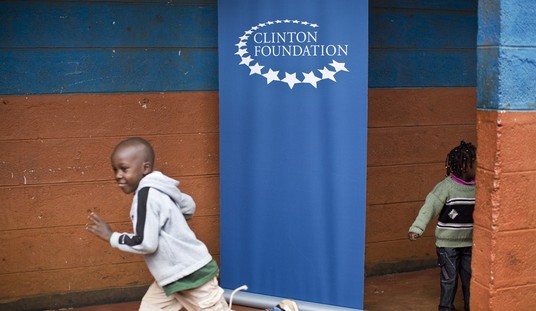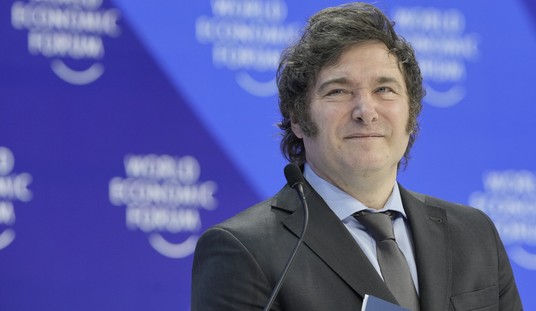Even while women devour the Twilight books, most revile the series’ heroine Bella Swan. The savvy modern woman prefers the vampire-slaying Buffy Summers. As a fan of both the Buffy the Vampire Slayer and Twilight franchises, I think that we have this partially backward and that the Buffy v. Bella arguments common on the web underscore dangerous assumptions about women. Feminists have co-opted Buffy and the female superheroes for the gender wars in order to perpetuate their illusion of no differences between men and women.
Conventional wisdom tells us that women can do anything men can. With rare exception owing to strength or stature, this is true. But we don’t always want to do what men do, and even if and when we do we have to account for our biology. Sometimes it is the strength and stature deficit, sometimes it is our heavier role in reproduction. The feminist intelligentsia thinks this unfair, so, couching their advice in terms of equality, they tell us to ignore biology. Accordingly, the female heroes who we admire today are the ones who work around reality.
It is great that we have heroes who happen to be women, but we mistake them as role models for womanhood. Five pop culture heroines to illustrate my point:
5. Hermione Granger, The Maligned Hero
Hermione helps Harry Potter figure out how to defeat the evil wizard Voldemort and, at great personal sacrifice, she accompanies Harry on his final quest.
As a role model for womanhood she is the best of this list. She shouldn’t even appear but for what we like about her. The oft-cited favorite Hermione part in the movies: when she punches Draco Malfoy.
Over eight films loaded with powerful women defying evil—Luna Lovegood, Molly Weasley, Lily Potter, Narcissa Malfoy—that inconsequential punch makes number six of the 50 greatest moments. What was a slap in the book was rewritten as the crowd-pleasing punch because we like it when a woman acts like a man, which is ironic considering the next most overrated heroine, Wonder Woman.
4. Wonder Woman, The “Anything Men Can Do, Women Can Do Better” Hero
Diana Prince, aka Wonder Woman, comes from Paradise Island, home of a super female race trained in literature, art, and athletics. When Major Steve Trevor’s fighter plane crashes on the beach, Diana nurses him back to traveling health and, against the wishes of her mother, the queen, wins the contest for the privilege of returning Major Trevor to the U.S.. She receives a golden belt to preserve her physical advantages while away from Paradise Island. She returns Steve to the U.S. and stays to help in the war against the Nazis.
If Wonder Woman were more recent, I would have listed her as the most overrated for hocking the superior woman theory. There is a virulent strain of feminism that thinks that women are better than men, that we make better leaders than men because we are more compassionate, peaceful, etc. Wonder Woman is that theory set to myth. For illustration, I recommend the original TV theme song, which contains lyrical gems such as “Make a hawk a dove/ Stop a war with love/ Make a liar tell the truth,” but the “bullets and bracelets” speech from the pilot is priceless. “Only a woman…”
3. Katniss Everdeen, The Androgynous Hero
Katniss is a poor girl with archery skills and smarts whose civilization calls for human tributes for a ruthless survival contest, the Hunger Games. When Katniss’s little sister is chosen for the games, she volunteers to take her place. In the contest, she saves herself and her male counterpart. In victory, she becomes a symbol of rebellion against the tribute state and battles on in the revolution.
Katniss admirably survives on her brains and nature skills. But if author Suzanne Collins had chosen to write the books with a male hero, she would only have needed to change a few details. The only womanly theme doesn’t appear until the epilogue when we learn that Katniss is married with two children. But even her dilemma about children — whether to bring them into a harsh world and how to explain what part their parents played in the revolution — is generic.
In a sense, Katniss is the ideal feminist heroine, gender neutral, but Collins had to ignore much to get the story to work. For instance, despite the brutal nature of the games, rape is never even mentioned as a threat. Collins did not give Katniss any superpowers which would make rape unlikely, but she doesn’t have Katniss out-think potential aggressors, either. Collins simply ignores the threat. Real women don’t have that luxury and so holding up Katniss as a female role model promotes a false sense of security for the women who admire her.
Katniss is a champion of individualism, but not gender.
 Gender neutralization isn’t the only problem with modern heroines. Stories that claim that women’s relationships amongst themselves take priority over other relationships have exploded. “Men come and go, but your girlfriends, sisters, and mothers will always be there for you” — so sayeth the Sisterhood of the Steel YaYa’s in the City. This is true even if being there for each other means holding hands in a double suicide. That Thelma and Louise regularly rates as an admirable female heroes movie horrifies me. We deem any woman’s actions heroic if done for herself or another woman. Pixar’s Brave illustrates this infallibility of the sisterhood.
Gender neutralization isn’t the only problem with modern heroines. Stories that claim that women’s relationships amongst themselves take priority over other relationships have exploded. “Men come and go, but your girlfriends, sisters, and mothers will always be there for you” — so sayeth the Sisterhood of the Steel YaYa’s in the City. This is true even if being there for each other means holding hands in a double suicide. That Thelma and Louise regularly rates as an admirable female heroes movie horrifies me. We deem any woman’s actions heroic if done for herself or another woman. Pixar’s Brave illustrates this infallibility of the sisterhood.
2. Princess Merida, The Hero?
The first born of the king of a divided land, Merida’s mother groomed her for duty as a future queen who will unite the land through marriage to one of three princes. The less-than-desirable adult boys come to the castle to compete for her hand. Merida, however, wants to ride free, practicing archery while the wind rushes through her unruly mane of red curls. In a plot akin to Freaky Friday only set in Scotland and with a bear transformation instead of a body switch, Merida complains to her mother that she doesn’t want to marry at all.
Merida isn’t heroic. She’s hardly admirable. Thinking only of herself, she drugged her mother hoping for a Stepford effect so she would let her do as she pleased. That aside, most feminist critiques I’ve seen favorably discuss the featured mother/daughter relationship and the lack of romance yet excuse the ending: Merida does not gain her freedom. The movie tries to camouflage this, closing with Merida riding free, practicing archery while the wind rushes though her unruly mane of red curls. But she still marries one of the three yahoos; she just gets to pick which one. Apparently, Merida’s heroism lies in her acceptance of a forced marriage.
Such is the power of the sisterhood. In one of the many and varied illusions of feminism, independent modern women are oddly susceptible to mother guilt. By blazing corporate ladder and sexual freedom trails, our feminist mothers made our career success possible. We owe them, you see. So mothers can compel teenage girls to marry a dud for duty, and the girl will still get the strong woman seal of approval. If the marriage was their father’s idea, or if the girl chose the marriage because she loved the prince, well, that’s another story.
1. Buffy Summers, The Hero Who Happens to Be a Girl
A long time ago, some magic men imbued all of their might into a girl vessel, a slayer, who then would keep demons at bay. Each time a slayer died, a new slayer was called. Called at 16, Buffy slayed and sacrificed with the help of her gentleman Watcher, friends, and a few good vampires.
In 2010 a fan did a great mashup video, Buffy v. Edward (the reviled Bella Swan’s good vampire). The video asserts that Buffy, a strong and powerful woman, would have dusted Edward Cullen, while Bella, a wimpy and passive woman, fell in love with him. The writer simply ignored that Buffy did not dust creepy, stalking, good vampires. She had lots of steamy sex with not one, but two such vampires. Undeterred by facts, the video juxtaposes stalking scenes in BtVS and Twilight. I wrote at the time:
Buffy is a super hero. Bella is not. She’s a normal girl. The book tells us that she is quite aware that she can expect to, at best, disable one of her attackers…. Buffy has the luxury of being glib and dismissive with her wannabe protector. Normal women, by virtue of biology and nature, don’t.
Buffy’s superpowers mean that she doesn’t have to ever deal with being the weaker sex. Furthermore, like Katniss, Buffy “saved the world—a lot” before she was 22, the ultimate feminist fantasy about establishing your career first. Most women aren’t so accomplished at 22, and our life goals eventually come into tension with our desire for children. Any role model for womankind should confront childbearing beyond an occasional throwaway line about “maybe, one day.”
Buffy is an admirable hero, one of my favorites in fact, but she is not a model for womanhood. She rarely has to confront it.
If this list of heroines only illustrated the irony of celebrating women acting like men and calling it girl power, I’d laugh it off. The problem is more consequential. When we admire these superheroes as role models for women because they slug it out, we set a goal we can never attain: physical dominance. We can’t fight like Buffy or Diana. A girl throwing a punch like Hermione would probably end up bloodied. Only a foolish woman ignores the danger of rape. The Mommy Wars sharply illustrate the constant tension between our ambition and motherhood.
We betray ourselves by our choices of heroines. We want to act like men. We have chosen men’s terms for success. And then, with no superpowers at our disposal, we wonder why success eludes us.
****
Related at PJ Lifestyle:










Join the conversation as a VIP Member